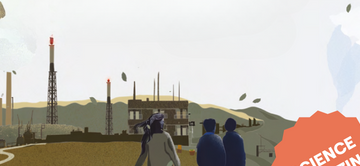This article was published in TSE science magazine, TSE Mag. It is part of the Spring 2024 issue, dedicated to “Climate Revolution”. Discover the full PDF here and email us for a printed copy or your feedback on the mag, there.
In contrast to scientific consensus on the origins and consequences of the climate crisis, the politics of climate action can be highly controversial. IAST computational sociologist Marijn Keijzer studies how pro-environmental attitudes form and how false polarization may impede collective action.
WHAT IS FALSE POLARIZATION?
People perceive that Western societies are increasingly polarized, yet there is little evidence to back that up. False polarization—the perception that society is more polarized than it actually is—is harmful nevertheless, reinforcing affective polarization, which describes the way people develop negative feelings towards those who think differently. This can prevent effective action.
HOW CAN NETWORK SCIENCE AID THE CLIMATE STRUGGLE?
My project ‘Unpacking the Polarization Perception Paradox’ investigates false polarization on climate action. I look at how pro-environmental behavior can be explained through social influence. How do social networks impact our beliefs and actions? How does the alignment of beliefs within groups affect our willingness to adapt to others? And how does political identity affect the ‘contagiousness’ of environmentalism?
Vegetarians, for example, are often friends with vegetarians so selection or influence must play a role in their diet choices. But do vegetarian friends influence this choice directly or indirectly, by influencing pro-environmental beliefs that trigger an eco-conscious diet? And which friends are most important for changing our political beliefs?




